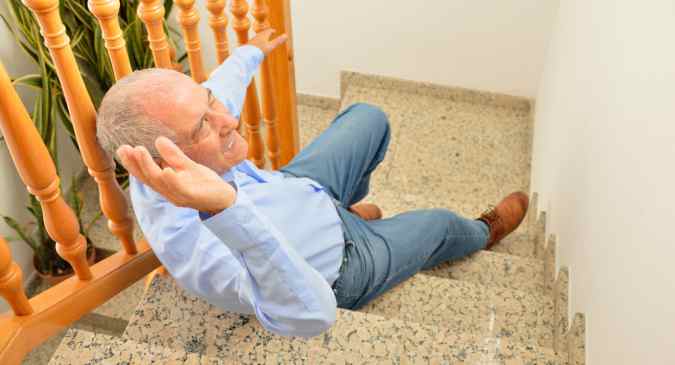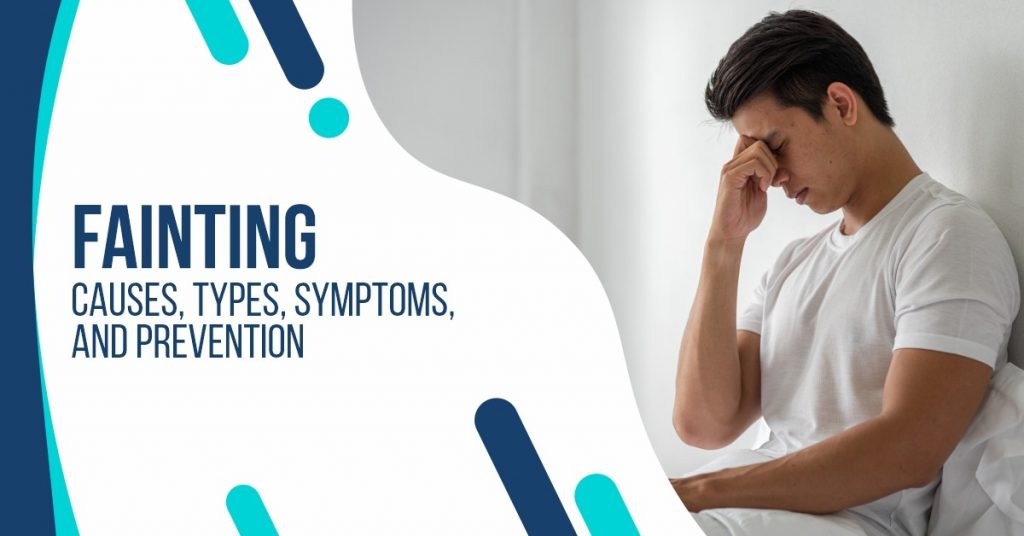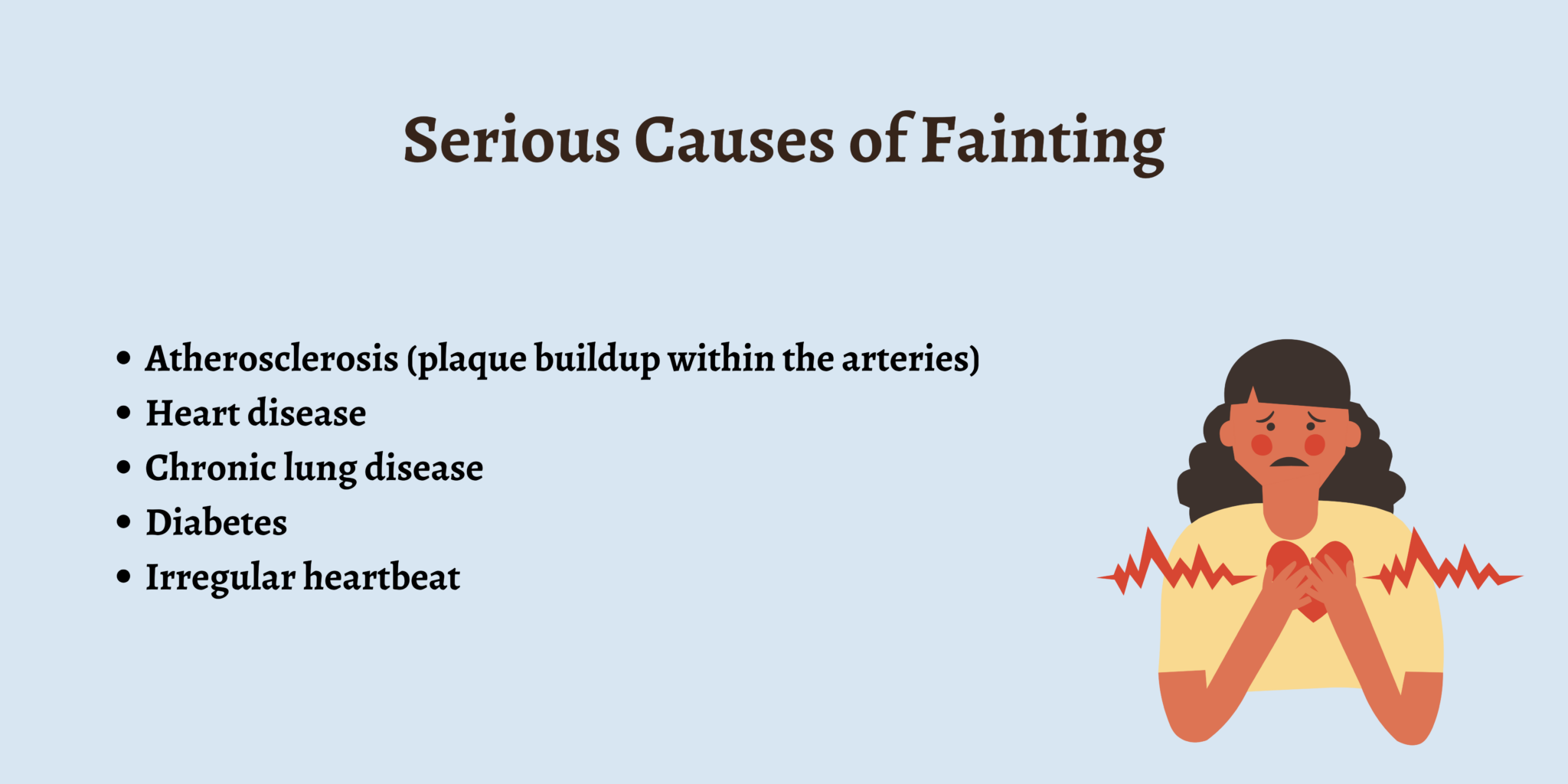Fainting in Men: Understanding the Causes and Seeking Help
Related Articles: Fainting in Men: Understanding the Causes and Seeking Help
Introduction
In this auspicious occasion, we are delighted to delve into the intriguing topic related to Fainting in Men: Understanding the Causes and Seeking Help. Let’s weave interesting information and offer fresh perspectives to the readers.
Table of Content
Fainting in Men: Understanding the Causes and Seeking Help

Fainting, also known as syncope, is a temporary loss of consciousness caused by a sudden decrease in blood flow to the brain. While fainting can occur in both men and women, understanding the specific causes and risk factors in men is crucial for timely diagnosis and appropriate management. This article provides a comprehensive overview of the various factors that can lead to fainting in men, emphasizing the importance of seeking medical attention for any unexplained episodes.
Common Causes of Fainting in Men
1. Vasovagal Syncope: This is the most frequent cause of fainting, accounting for roughly half of all cases. Vasovagal syncope occurs when the autonomic nervous system, which controls involuntary bodily functions, malfunctions. This malfunction can be triggered by various stimuli, including:
- Emotional Stress: Intense emotions such as fear, pain, or excitement can trigger a rapid heart rate and blood vessel dilation, leading to a drop in blood pressure and fainting.
- Pain: Severe pain, especially in the extremities, can also induce vasovagal syncope.
- Prolonged Standing: Standing for extended periods, particularly in hot or crowded environments, can reduce blood flow to the brain, leading to fainting.
- Coughing or Sneezing: Forceful coughing or sneezing can increase pressure in the chest, temporarily reducing blood flow to the brain.
- Defecation or Urination: Straining during bowel movements or urination can trigger a similar pressure response, potentially leading to fainting.
2. Orthostatic Hypotension: This condition involves a sudden drop in blood pressure upon standing up, leading to dizziness and fainting. Orthostatic hypotension can be caused by:
- Dehydration: Insufficient fluid intake can lead to a decrease in blood volume, resulting in lower blood pressure upon standing.
- Medications: Certain medications, such as antihypertensives and diuretics, can lower blood pressure and increase the risk of orthostatic hypotension.
- Autonomic Nervous System Disorders: Conditions like diabetes, Parkinson’s disease, and multiple sclerosis can affect the autonomic nervous system, leading to orthostatic hypotension.
3. Cardiac Causes: While less common, heart-related issues can also cause fainting. These include:
- Arrhythmias: Irregular heartbeats, such as bradycardia (slow heart rate) or tachycardia (fast heart rate), can disrupt the normal flow of blood to the brain.
- Valvular Heart Disease: Damaged heart valves can impede blood flow, leading to reduced blood supply to the brain and fainting.
- Coronary Artery Disease: Blockage of the coronary arteries can reduce blood flow to the heart muscle, leading to chest pain and, in severe cases, fainting.
4. Neurological Causes: Fainting can also be caused by neurological conditions affecting the brain or nervous system:
- Seizures: Fainting can be a symptom of certain types of seizures, particularly those involving loss of consciousness.
- Migraines: Some individuals may experience fainting as a symptom of severe migraines.
- Syncope of Unknown Origin: In some cases, the cause of fainting remains unclear despite thorough investigation.
5. Other Causes:
- Hypoglycemia: Low blood sugar, often experienced by individuals with diabetes, can lead to fainting.
- Anemia: A deficiency in red blood cells can reduce oxygen-carrying capacity, leading to fainting.
- Hyperventilation: Rapid, deep breathing can lead to a decrease in carbon dioxide levels in the blood, potentially causing fainting.
- Drug Use: Certain substances, including alcohol, narcotics, and stimulants, can affect the cardiovascular system and increase the risk of fainting.
Importance of Identifying Fainting Causes in Men
Understanding the underlying cause of fainting is crucial for effective management and preventing future episodes. A thorough medical evaluation is essential to rule out serious underlying conditions and develop an appropriate treatment plan.
Benefits of Identifying Fainting Causes
- Accurate Diagnosis: Identifying the cause of fainting allows for a specific diagnosis and tailored treatment.
- Prevention of Future Episodes: Understanding the triggers and risk factors can help individuals take preventive measures to reduce the likelihood of future fainting episodes.
- Management of Underlying Conditions: Addressing underlying medical conditions, such as heart disease or diabetes, can help prevent fainting and improve overall health.
- Peace of Mind: Knowing the cause of fainting can alleviate anxiety and provide reassurance for both the individual and their loved ones.
FAQs by Fainting Causes in Men
Vasovagal Syncope:
-
Q: What are the symptoms of vasovagal syncope?
- A: Symptoms typically include dizziness, nausea, sweating, a feeling of warmth, and a rapid heart rate before fainting. After fainting, individuals may feel weak and disoriented.
-
Q: How can I prevent vasovagal syncope?
- A: Avoid triggers like prolonged standing, emotional stress, and hot or crowded environments. Staying hydrated and eating regular meals can also help.
-
Q: When should I seek medical attention for vasovagal syncope?
- A: Seek medical attention if fainting episodes are frequent, occur without a clear trigger, or are accompanied by other concerning symptoms like chest pain or difficulty breathing.
Orthostatic Hypotension:
-
Q: What are the symptoms of orthostatic hypotension?
- A: Symptoms include dizziness, lightheadedness, blurred vision, and fainting upon standing.
-
Q: How can I prevent orthostatic hypotension?
- A: Stay hydrated, avoid sudden changes in posture, and consider compression stockings. If medications are contributing, consult with your doctor.
-
Q: When should I seek medical attention for orthostatic hypotension?
- A: Seek medical attention if symptoms are persistent, severe, or accompanied by other concerning symptoms like chest pain or shortness of breath.
Cardiac Causes:
-
Q: What are the symptoms of fainting related to heart problems?
- A: Symptoms may include chest pain, shortness of breath, irregular heartbeat, and palpitations.
-
Q: When should I seek medical attention for fainting related to heart problems?
- A: Seek immediate medical attention if fainting is accompanied by any of the above symptoms.
Neurological Causes:
-
Q: What are the symptoms of fainting related to seizures?
- A: Symptoms may include muscle twitching, loss of consciousness, and confusion after regaining consciousness.
-
Q: When should I seek medical attention for fainting related to seizures?
- A: Seek immediate medical attention if fainting is accompanied by any of the above symptoms.
Other Causes:
-
Q: What are the symptoms of fainting related to hypoglycemia?
- A: Symptoms may include sweating, trembling, dizziness, confusion, and blurred vision.
-
Q: When should I seek medical attention for fainting related to hypoglycemia?
- A: Seek immediate medical attention if fainting is accompanied by any of the above symptoms.
Tips by Fainting Causes in Men
General Tips:
- Stay Hydrated: Maintain adequate fluid intake throughout the day.
- Avoid Triggers: Identify and avoid personal triggers for fainting, such as emotional stress, prolonged standing, or hot environments.
- Regular Exercise: Engage in regular physical activity to improve cardiovascular health.
- Healthy Diet: Maintain a balanced diet rich in fruits, vegetables, and whole grains.
- Limit Alcohol Consumption: Excessive alcohol consumption can increase the risk of fainting.
- Monitor Medications: Discuss any potential side effects of medications with your doctor, especially those that can affect blood pressure.
- Seek Medical Attention: Don’t hesitate to seek medical attention for any unexplained fainting episodes.
Specific Tips:
- Vasovagal Syncope: Practice deep breathing exercises and gradually increase the duration of standing after prolonged sitting.
- Orthostatic Hypotension: Rise slowly from a seated or lying position, avoid prolonged standing, and consider compression stockings.
- Cardiac Causes: Follow your doctor’s recommendations for managing heart conditions and taking prescribed medications.
- Neurological Causes: Consult a neurologist for evaluation and management of seizure disorders or other neurological conditions.
- Other Causes: Manage underlying conditions like diabetes or anemia as directed by your doctor.
Conclusion by Fainting Causes in Men
Fainting in men can be caused by a variety of factors, ranging from benign vasovagal syncope to potentially serious cardiac or neurological conditions. It is crucial to seek medical attention for any unexplained fainting episodes to ensure a proper diagnosis and appropriate management. By understanding the causes and risk factors, men can take proactive steps to prevent future fainting episodes and maintain their overall health. Open communication with healthcare providers is essential to address concerns and develop a personalized treatment plan.

:max_bytes(150000):strip_icc()/1298399-article-img-causes-of-fainting1-5a5520127bb283003773f0c9.png)

:focal(1063x708:1064x709)/https://tf-cmsv2-smithsonianmag-media.s3.amazonaws.com/filer_public/92/4d/924df39c-4961-4fc5-b7a6-46768e8d7194/gettyimages-200344289-001.jpg)




Closure
Thus, we hope this article has provided valuable insights into Fainting in Men: Understanding the Causes and Seeking Help. We hope you find this article informative and beneficial. See you in our next article!